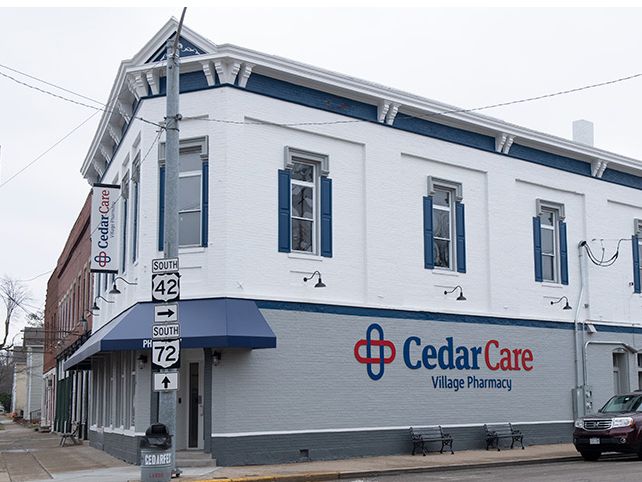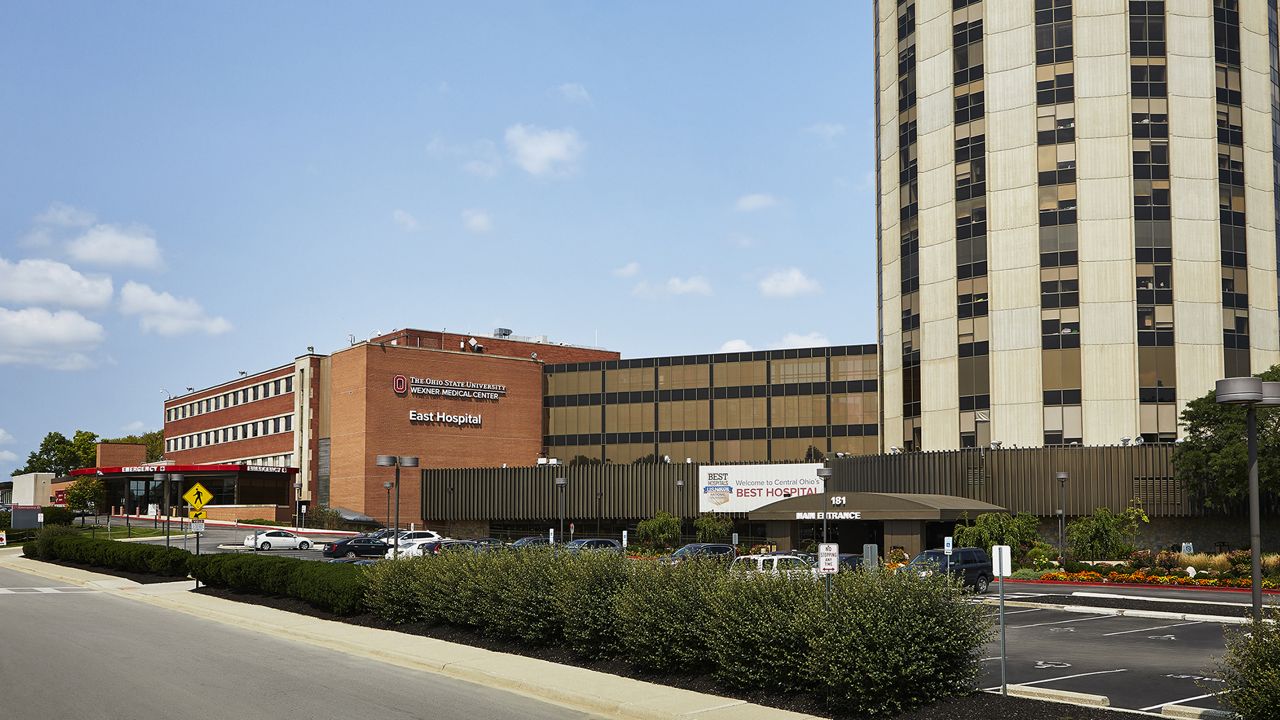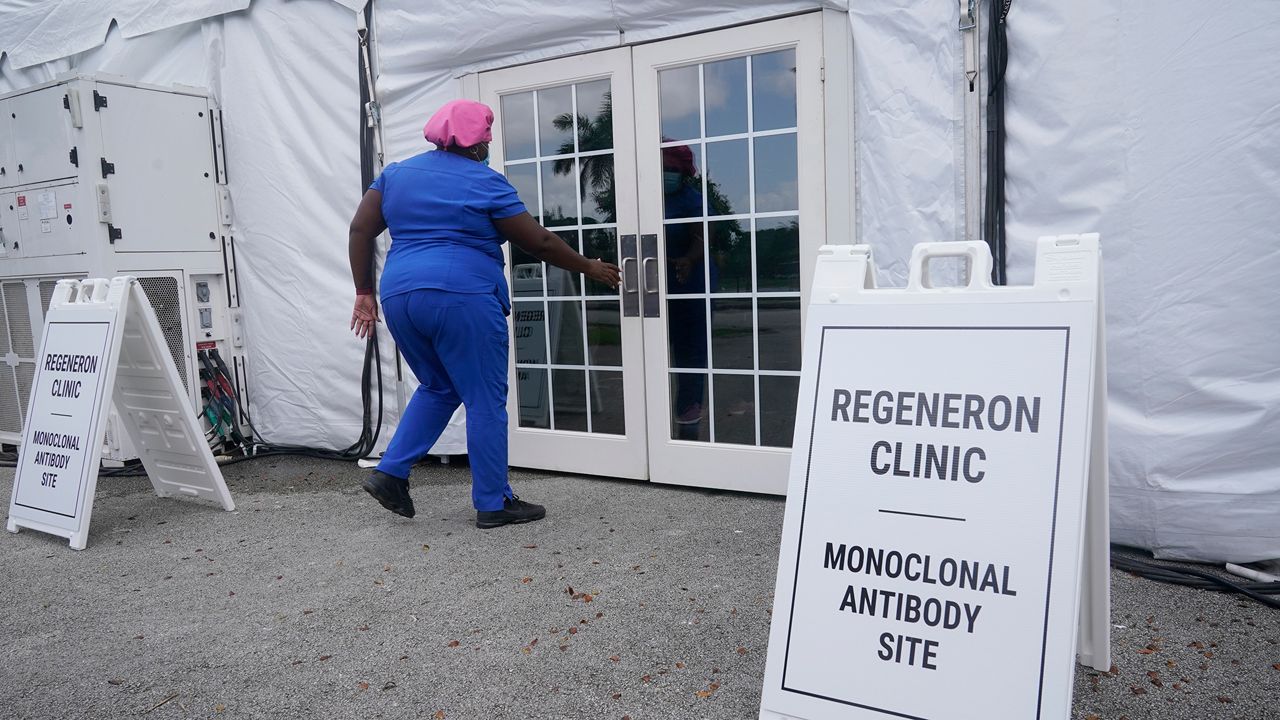COLUMBUS, Ohio — The expanding repository of therapeutics to treat COVID-19 patients in the U.S., with prospects of an oral pill joining the mix, gives experts hope about the health care system becoming better able to mitigate the virus’s impacts.
What You Need To Know
- An FDA panel is set to review Merck's oral antiviral pill in late November
- Monoclonal antibody treatments are making an impact, but have limitations
- An infectious disease specialist discusses the future of therapeutics
Patients are driving from all over Ohio to a pharmacy in Cedarville that began offering monoclonal antibody injections this month.
“The first couple of weeks we've just been pretty bombarded,” said Justin Coby, director of pharmacy at Cedar Care Village Pharmacy, a teaching pharmacy associated with Cedarville University.
Coby said the pharmacy initially received 24 treatments, but has since been getting restocked through the Ohio Department of Health, which is allowing them to administer about five injection series per day. It is an alternative way for patients to get a monoclonal antibody treatment at a time when many hospital infusion sites have waitlists, he said.
While Cedar Care was the first community pharmacy in Ohio to offer the injection, pharmacies across the state and beyond are likely to become more involved in offering therapeutics in the coming months as more supply becomes available and as drug manufacturers seek approvals for additional treatments that can be distributed outside the hospital setting.
Monoclonal antibodies, the only approved therapeutics for non-hospitalized patients, can reduce hospitalizations by about 70%, but administering the treatment is a resource-intensive process, said Dr. Carlos Malvestutto, associate professor in the division of infectious diseases at Ohio State Wexner.
Most patients who get monoclonal antibodies receive hour-long infusions of drugs from Regeneron or Eli Lilly. The injection option that Cedar Care offers, which is authorized for Regeneron's drug as an alternative when infusion isn’t available, requires four shots.

“Monoclonal antibodies are essentially clones of antibodies that have been pulled from folks who've survived COVID,” Coby said. “Early in the pandemic, there was a big push for those with antibodies to go give blood. Well, that's what they were doing. They were taking these antibodies, cloning and synthesizing them in a lab and then this is how the Regeneron product came to be.”
Coby said administering the injections and then monitoring patients for an hour makes for a similar timetable for patients as if they were to get the treatment as an infusion. Patients must be monitored for an hour afterwards regardless of how they receive the treatment.
Oral pills, on the other hand, like those in development from Merck and other manufacturers, would give patients the more simple option to take medicine at home a couple times a day for several consecutive days. The antiviral medications are meant to improve the chances of a quicker recovery, Malvestutto said.
Merck submitted an application earlier in the month asking U.S. regulators to approve its drug molnupiravir, the furthest along oral antiviral treatment for COVID-19. The company reported that the pill cut hospitalizations and deaths in half in a large trial of patients with early symptoms of mild to moderate COVID-19, who had at least one risk factor for progressing to severe disease.
A potential emergency-use authorization for an oral pill would likely be limited to patients with risk factors for severe complications for COVID-19, but that could be a large pool of people, as in more than half the population, Malvestutto said. Seniors and those overweight with a body mass index of 25 above, as well those with various conditions and immunosuppressed states, are eligible for monoclonal antibodies, he noted.
A Food and Drug Administration panel is scheduled to convene on Nov. 30 to consider Merck’s application.
If an oral pill is approved, patients could get prescriptions filled and begin the treatment right away. Like monoclonal antibodies, oral antivirals work best when started early in the course of illness, Malvestutto said.
“It is potentially a game changer, and I hope we can use it broadly because we certainly need an effective and safe oral medication,” Malvestutto said. “All logistical issues and the staffing requirements that we currently have to put in place to provide monoclonal antibodies, that would not be an issue for an oral medication.”
Currently, monoclonal antibodies are provided at many hospitals as well as some home health providers, dialysis centers and long-term care services.

While Ohio State’s infusion clinic is able to schedule patients next-day for monoclonal antibody treatments, and has administered more than 2,500 infusions, those who don’t have access to a major hospital have a harder time getting the treatment, Malvestutto said.
Even though monoclonal antibodies appear to offer a higher reduction in severe virus outcomes than molnupiravir, an oral pill would help reach many more people, Malvestutto said.
Coby said he can envision a future in which patients could come to get tested for COVID-19 at the pharmacy and be prescribed an oral antibody, or a monoclonal antibody injection on the spot.
While monoclonal antibodies have become more widespread in the last few months, Malvestutto said it’s still quite an undertaking for providers to create a space where patients with active COVID can come to get the infusion, while keeping staff and other patients safe. For smaller health care facilities, the spacing and staffing requirements are in many cases prohibitive, he said.
“You can think of small towns in rural areas where there may not be a medical center nearby that is able to provide the monoclonal antibodies," he said. “The use of the monoclonal antibodies has certainly increased, but it's something that we just have not been able to make as accessible as we would like."



